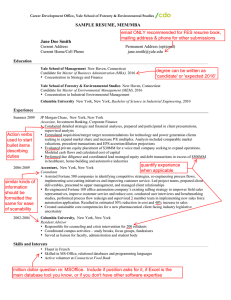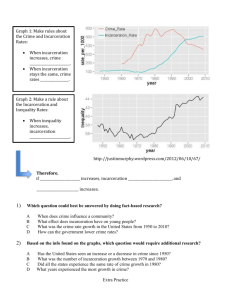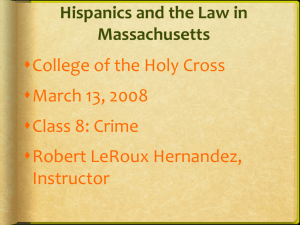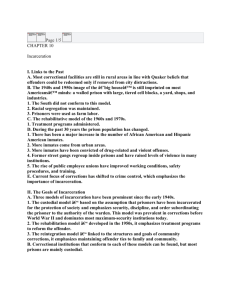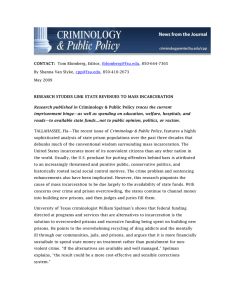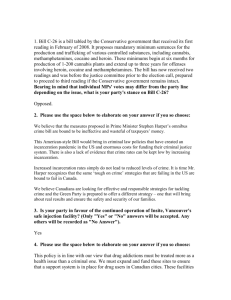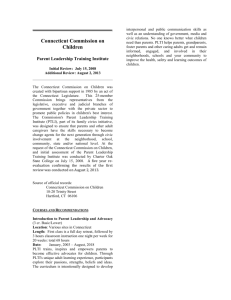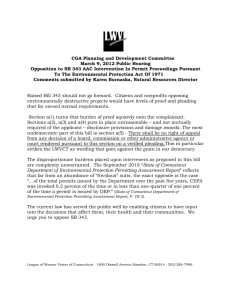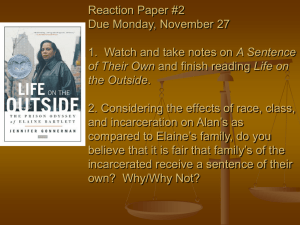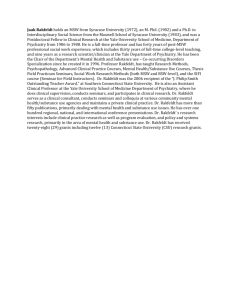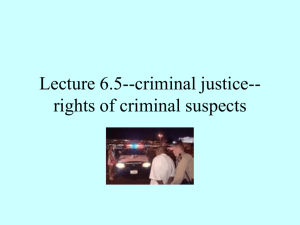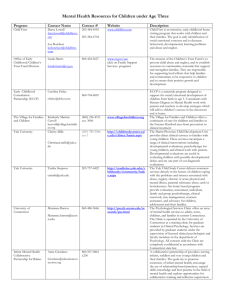Why Mass Incarceration Matters: Rethinking Crisis
advertisement
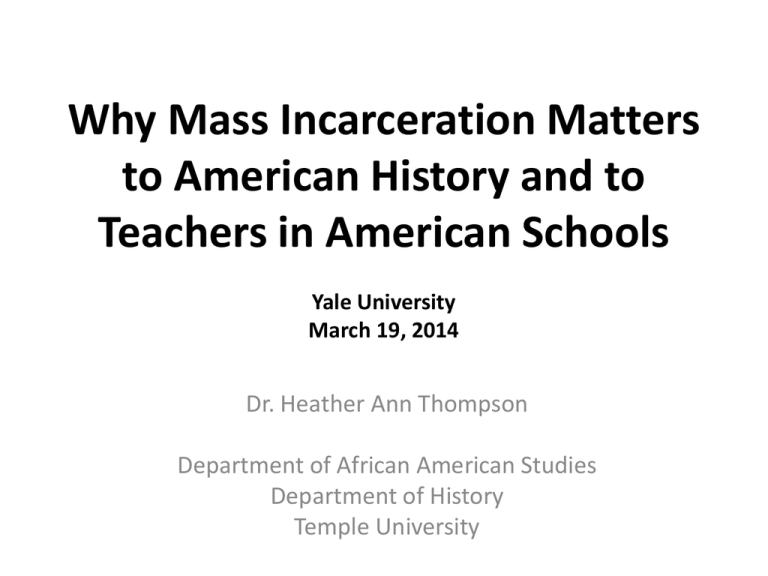
Why Mass Incarceration Matters to American History and to Teachers in American Schools Yale University March 19, 2014 Dr. Heather Ann Thompson Department of African American Studies Department of History Temple University By 2008 in CT: • 19, 413 locked behind bars in 18 facilities • 1/33 residents under some form of correctional control So? Mass Incarceration Matters The fate of our cities The “Criminalization of Urban Space” Why now? LBJ and the Origins of the War on Crime • Law Enforcement Assistance Act, 1965 • President's Commission on Law Enforcement and Administration of Justice, 1965 • District of Columbia Crime Bill, 1967 • Omnibus Crime Control and Safe Streets Act, 1968 What is old, is new A Revolution in Drug Legislation Lock up longer Criminalizing Schools The Fallout…. “Million Dollar Blocks” Orphaning Children Joblessness and Poverty Welfare? The Long Reach of the Carceral State Rethinking the Fate of our Economy Post-1865 Post-1965 Prison Labor CORRECTIONAL ENTERPRISES OF CONNECTICUT Brand new age of prison privatization for profit • Example: Corrections Corporation of America (CCA), Wackenhut, etc. Urban and Labor Crisis So, why haven’t we changed this? Distorting Democracy 1974: Richardson v. Ramirez 2006: 48 out of 50 states have a disfranchisement law on the books The U.S. Census…. The U.S. Census….and Connecticut Bottom line: The majority-white residents of 7 state House districts in Connecticut get significantly more representation in the legislature because each of their districts includes more than 1,000 incarcerated people of color from other parts of the state. So what about everyone else? Why Mass Incarceration Matters to American History and to Teachers in American Schools Yale University March 19, 2014 Dr. Heather Ann Thompson Department of African American Studies Department of History Temple University
